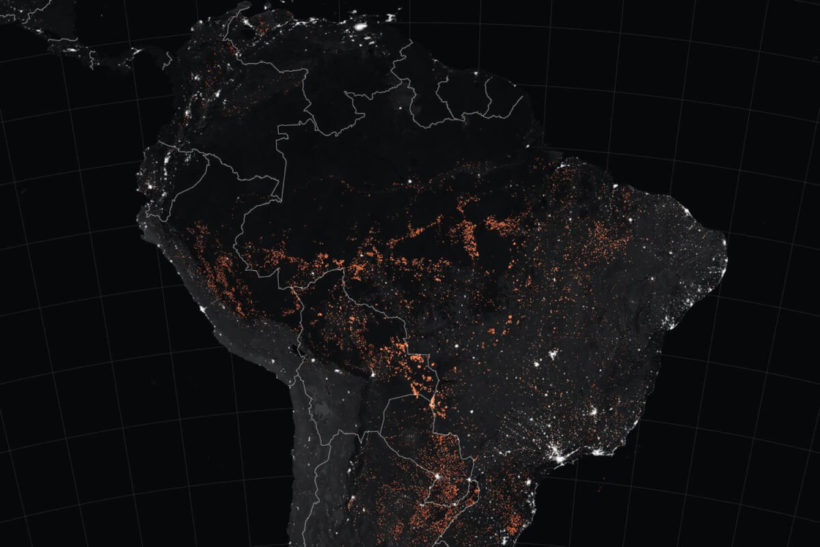Zara, a company of the Inditex group, appears in a report published this week on the responsibility of major clothing brands in the deforestation of the Amazon, a process that has intensified since the beginning of the decade. The Slow Factory collective introduces with this study, directed by Stand.Earth, the “brand” factor in the commercial chain that through livestock farming favours the loss of biomass in the so-called green lung of Latin America.
Specifically, the brand led by the Ortega family works with six suppliers that, in turn, are under the orbit of two of the major players responsible for the expansion of livestock farming in the Amazon basin, the JBS and Viposa groups. They are among the six tanneries that supply the market for the 100 brands identified in the study.
JBS in particular is considered the “leading butcher” in the Amazon. The company, led by Joesley Batista, is responsible for one out of every three kilos of meat exported from Brazil, for the majority of leather exports from the American country and also works for large food chains such as Burger King and McDonald’s. A 2020 Greenpeace report noted that the group was involved in illegal deforestation in the region and operated illegally on protected indigenous lands, and that its umbrella covered other companies accused of modern slavery.
According to the Slow Factory study, JBS supply chains are responsible for the deforestation of three million hectares over the last decade. Among the areas where cattle ranching has spread illegally are the Ouro Preto River Reserve, the Jacy-Paraná River Reserve and the Uru-Eu-Wau-Wau Indigenous territory.
The report conducted by Stand.Earth was conducted by analysing 500,000 lines of customs data “to uncover hidden supply chains linking footwear and fashion brands to deforestation in the Amazon rainforest”. The data was obtained from administrations both in Brazil and in countries where leather is processed into clothing: Vietnam, China, India, Indonesia, Pakistan and the Philippines.
Zara is among the brands with a high role in deforestation as it has several links with the livestock companies responsible for the loss of biomass in the Amazon. Other companies in this ranking are Adidas, Nike, New Balance, the shoe brand Camper or Lacoste.
Inditex is one of the companies that does not have specific responsibility policies that limit business with companies that cause deforestation. However, a third of the companies that appear in the report do have commitments along these lines, something that has not prevented them from keeping suppliers in the JBS network.
“The Amazon is already on the brink and cannot survive years more of deforestation,” explained Carolina Pasquali, executive director of Greenpeace Brazil, during Cop26. The arrival of Jair Bolsonaro in government has accelerated the destruction of the Amazon Forest, with deforestation in Brazil’s Amazon region increasing by 30% since Bolsonaro came to power, according to the Amazon Institute.










